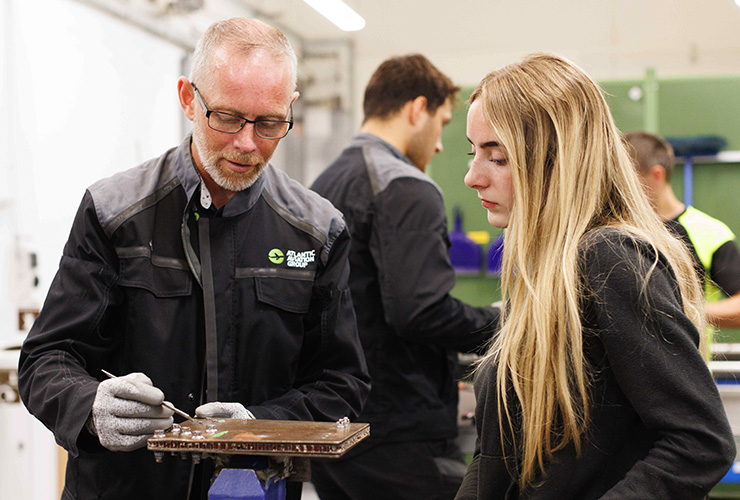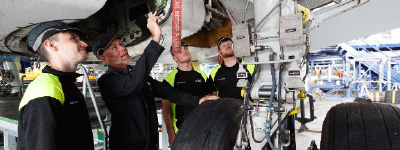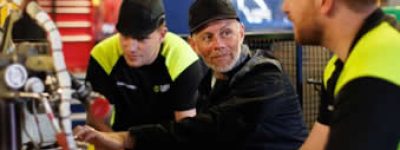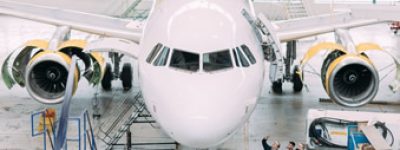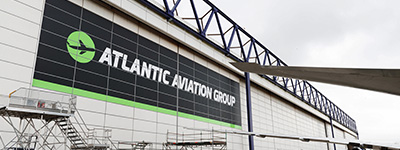Aircraft Maintenance Technician 2-year, 3-month traineeship
Atlantic Aviation Group is pleased to offer our Aircraft Maintenance Licence CAT A Training Programme in partnership with the Limerick and Clare Education Training Board.
This traineeship has been developed to meet the skill and knowledge requirements for an EASA Part 66 Cat A Aircraft Maintenance Engineers Licence, preparing trainees to work competently and safely within the aircraft maintenance environment.
Programme Status: Applications are now OPEN for our 2025 programmes. Apply here
What Does an Aircraft Maintenance Technician (CAT A Mechanic) Do?
An Aircraft Maintenance Technician (CAT A Mechanic) performs minor maintenance tasks and part replacements, subsequently certifying these tasks. They are permitted to perform various maintenance activities during heavy and line maintenance on aircraft systems and components.
The aviation industry is regulated by the European Aviation Safety Agency (EASA), the Federal Aviation Administration (FAA) in America, and the Irish Aviation Authority (IAA).
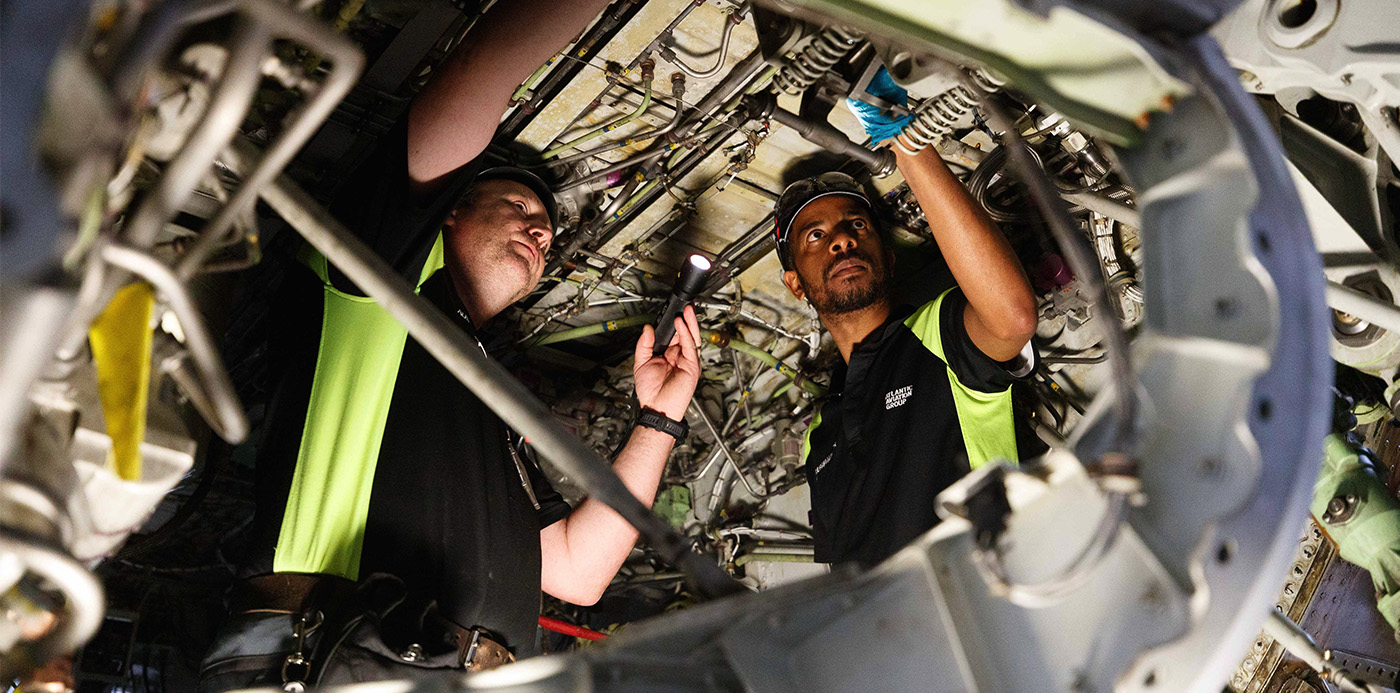
Programme Coverage:
The course includes:
- Theory
- Workshop Practical Training
- Aircraft Practical Training
- On-the-Job Experience at Atlantic Aviation Group’s Shannon facility
Upon completion, trainees can apply to the Irish Aviation Authority (IAA) for their EASA Cat A Aircraft Maintenance Licence.
Learn from the Best:
Our qualified trainers and assessors use proven training methods to ensure high-quality training. The excellence of our service is recognised throughout the industry.
Programme Structure:
Phase 1 – Initial Training: The theory training is divided into 12 modules/subjects, intermixed with practical training and examinations over 43 weeks. Modules include:
- Mathematics
- Physics
- Electrical Fundamentals
- Digital Techniques
- Materials and Hardware
- Maintenance Practices
- Basic Aerodynamics
- Human Factors
- Aviation Legislation
- Aeroplane Aerodynamics, Structures & Systems
- Gas Turbine Engines
- Propellers
Phase 2 – Practical Training (On-the-Job): Theory and practical training are consolidated on aircraft and in support workshops. Candidates gain hands-on experience under the guidance of production staff and the Training Academy at Atlantic Aviation Group.
Examinations: Examinations are conducted at the end of each module, primarily in multiple-choice formats with a pass mark set by EASA at 75%.
Duration:
This is a 27-month traineeship combining education and training with practical work experience at Atlantic Aviation Group.
Learning Outcomes
Upon successful completion of the Aircraft Maintenance Licence CAT A Traineeship, trainees will have achieved a comprehensive understanding and practical skill set necessary for a career in aircraft maintenance. Specifically, trainees will:
- Master Theoretical Knowledge: Gain in-depth knowledge of essential subjects including mathematics, physics, electrical fundamentals, digital techniques, materials and hardware, maintenance practices, basic aerodynamics, human factors, aviation legislation, aeroplane aerodynamics, structures and systems, gas turbine engines, and propellers.
- Develop Practical Skills: Acquire hands-on experience in practical training environments, covering all aspects of aircraft maintenance from minor repairs to comprehensive maintenance tasks on various aircraft systems and components.
- Understand Regulatory Compliance: Demonstrate a detailed understanding of the rules, regulations, and legislation governing the aviation industry, ensuring compliance with EASA, FAA, and IAA standards.
- Obtain Certification: Be eligible to apply for the EASA Cat A Aircraft Maintenance Licence, recognised internationally as the standard qualification for Aircraft Maintenance Engineers.
- Enhance Problem-Solving Abilities: Develop the ability to identify, analyse, and resolve maintenance issues efficiently and effectively within the aircraft maintenance environment.
- Improve Safety Awareness: Gain a thorough understanding of safety protocols and best practices, ensuring all maintenance tasks are performed to the highest safety standards.
- Prepare for Career Advancement: Be equipped with the foundational knowledge and skills required for further career development and opportunities within the aviation industry, including the potential to upgrade to a B1/B2 licence.
Qualification:
Upon completion, trainees can apply for the EASA Cat A Aircraft Maintenance Licence, which can be upgraded to a B1/B2 with additional examinations and experience. These qualifications are recognised by colleges and universities, potentially reducing the duration of further studies.
Entry Requirements:
- Candidates must be over 17 years of age.
- Must be an Irish, EU, or UK citizen.
- Must have completed the Leaving Certificate with a minimum Grade C in Ordinary Level Maths or equivalent.
- Suitable candidates will undergo aptitude tests, practical assessments, and interviews.
- Reference checks, medical examinations, and security checks are required.
Career Opportunities:
Trainees have various opportunities upon completion, with many continuing their careers at Atlantic Aviation Group or exploring international positions.
How to Apply
Applications can be made online by visiting Fetch Courses »
Why choose Atlantic Aviation Group: Atlantic Aviation Group is a leading Part 145 provider with over 60 years of experience, recognised for our expertise and quality workmanship in aviation. Our award-winning training programmes have been producing skilled professionals for over 30 years.
